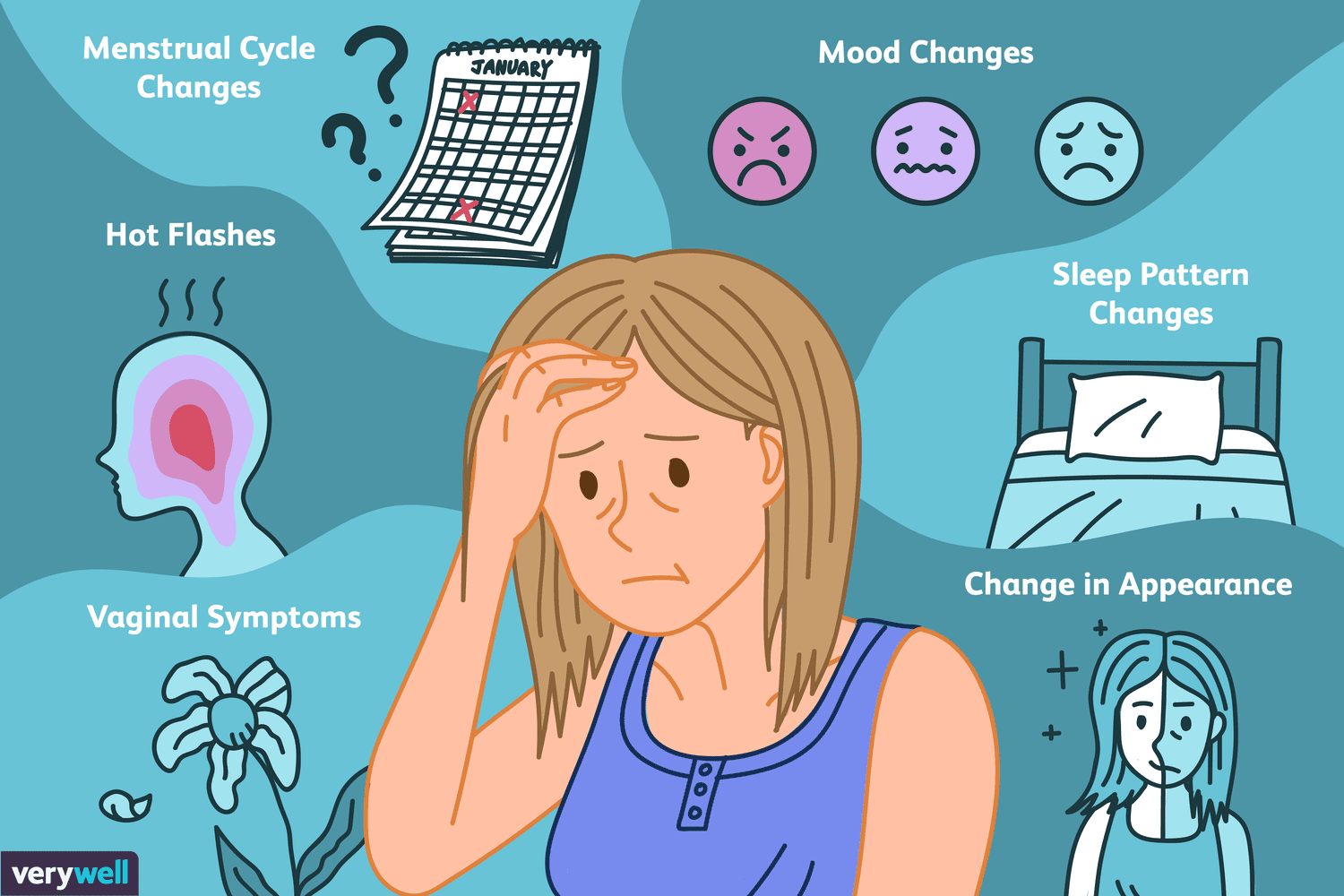Menopause doesn’t usually begin all at once. Instead, it starts with a transitional phase called perimenopause, where your hormone levels start to shift and your body begins to show signs that reproductive changes are underway.
These early symptoms can be subtle or disruptive, and they don’t look the same for everyone. For example, some may notice changes in mood, sleep, or energy before realizing what’s actually happening. Recognizing the first signs of menopause is essential for staying proactive about your health and planning ahead.
During this time, many turn to lifestyle changes, increased movement, and supportive options like MENO menopause supplements to help manage shifts more comfortably. Understanding what’s normal and what signals the start of menopause can help make the process feel more manageable and less confusing.
When Does Menopause Typically Begin?
The early signs of menopause usually start during perimenopause, which can begin in the mid-40s for many, though some experience it earlier or later. This phase may last anywhere from a few months to several years before periods stop entirely.
Menopause itself is officially confirmed once a person has gone 12 consecutive months without a menstrual cycle. However, symptoms often begin well before that point, prompting many women to explore holistic options such as Traditional Chinese Medicine-based menopause wellness to manage hormonal changes. These shifts can affect many areas of your body and mind, which is why it’s important to understand when they can begin. Tracking your symptoms and timing can also offer valuable insights into choosing the most supportive care approach.
Sign #1: Irregular Periods and Cycle Changes
One of the most common signs of menopause is a change in your menstrual cycle. Periods may become less predictable, sometimes arriving closer together or farther apart than usual. Flow can also change, becoming heavier or lighter from month to month. Some people even experience skipped periods that return later with no set pattern.
These cycle changes are triggered by fluctuating levels of estrogen and progesterone, the hormones that regulate menstruation. While irregular bleeding during perimenopause is expected, it’s vital to track changes and consult a healthcare provider if bleeding becomes unusually heavy or prolonged.
Sign #2: Hot Flashes and Night Sweats
Hot flashes are a well-known early symptom of menopause. They often start with a sudden sensation of heat in the face, neck, or chest, sometimes followed by flushing or sweating. These episodes can last from a few seconds to several minutes and may happen during the day or at night.
When they occur at night, they’re commonly referred to as night sweats. These can interrupt your sleep and leave you feeling tired or irritable the next day. Hot flashes are linked to shifting hormone levels, particularly a drop in estrogen.
While not everyone experiences them the same way, they tend to be one of the more noticeable early symptoms of menopause. Some people have occasional episodes, while others deal with them more frequently as their hormone levels continue to change.
External factors like stress, caffeine, alcohol, or warm environments can all trigger hot flashes. Luckily, wearing breathable fabrics, avoiding spicy foods, and practicing deep breathing may help reduce their intensity. Some individuals find that tracking triggers makes them easier to manage.
Sign #3: Mood and Cognitive Shifts
Emotional and mental shifts are also early signs of menopause. Irritability, anxiety, and unexplained mood changes can occur even in individuals with no history of mood disorders. These changes are often related to fluctuations in estrogen, which plays a role in regulating the neurotransmitters that affect your mood.
Cognitive symptoms may also appear. These can include trouble concentrating, forgetfulness, or feeling mentally foggy. Some find it harder to stay focused at work or remember details that used to come easily. Ultimately, recognizing that hormonal changes can affect mood and cognition is an important step in managing your expectations and seeking support when needed.
Sign #4: Changes in Sleep Patterns and Energy Levels
Sleep disruptions often start early in the menopausal transition. Some individuals have trouble falling asleep, while others wake frequently throughout the night. These issues may be linked to night sweats, anxiety, or shifting hormone levels that disrupt regular sleep cycles.
As a result, energy levels during the day can drop. Many report feeling more fatigued than usual or having trouble maintaining focus. These changes can impact your productivity, mood, and overall well-being. Adjusting your evening routine, creating a sleep-friendly environment, and exploring medical or lifestyle support can all make a difference over time.
Spot the Signs, Stay in Control
Recognizing the first signs of menopause can help you make better decisions about your health, comfort, and daily life. Understanding what’s happening allows for proactive care and makes moving through this transition more manageable and less overwhelming.































